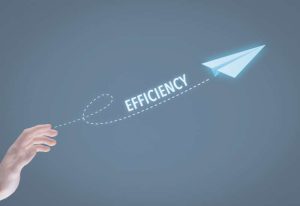
Enterprise Resource Planning (ERP) systems are software platforms designed to optimize and streamline various business processes. These systems integrate different business functions and enable businesses to operate more efficiently, increase productivity, and drive growth. In this article, we will discuss how ERP systems optimize processes and the benefits of using these systems.
- Standardization: ERP systems help standardize business processes by providing a single source of truth for all data and information. This enables businesses to ensure consistency and accuracy across different departments and functions, reducing errors and improving efficiency.
- Automation: ERP systems automate routine and manual processes, reducing the time and effort required to perform these tasks. This includes automating tasks such as data entry, inventory management, and order processing, enabling employees to focus on more strategic tasks that require human input.
- Real-Time Data Access: ERP systems provide real-time data access, enabling businesses to make informed decisions based on up-to-date information. This includes data such as inventory levels, sales data, and customer information, which can be used to optimize processes and drive growth.
- Improved Communication and Collaboration: ERP systems improve communication and collaboration among different departments and teams within a business. This includes enabling employees to share data and insights across different functions, improving coordination and reducing silos.
- Streamlined Supply Chain Management: ERP systems streamline supply chain management by enabling businesses to manage their inventory levels, track orders, and optimize shipping and delivery. This can help businesses reduce costs and improve customer satisfaction by ensuring that products are delivered on time and in good condition.
- Enhanced Customer Service: ERP systems enable businesses to provide better customer service by providing real-time access to customer data and insights. This includes customer interactions, purchase history, and feedback, which can be used to personalize interactions and improve customer satisfaction.
In conclusion, ERP systems are essential for optimizing and streamlining business processes. Standardization, automation, real-time data access, improved communication and collaboration, streamlined supply chain management, and enhanced customer service are just some of the benefits of using ERP systems. By leveraging the capabilities of these systems, businesses can operate more efficiently, reduce costs, and drive growth.




